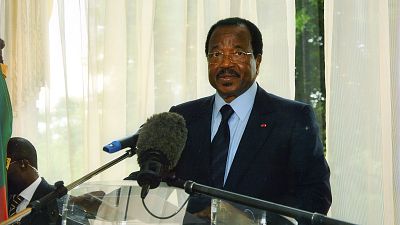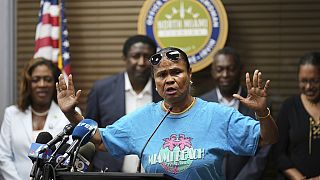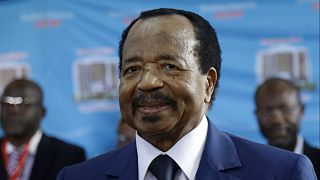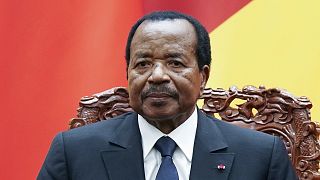Cameroon
Border security, Boko Haram and human rights, Cameroonian army gears up for 2016
In the name of solidarity, Cameroonian Defense Minister Joseph Beti Assomo spend New Year’s eve with the country’s army in the Kolofata district. There he delivered a message of support to the men in uniform involved in the fight against insurgency group,Boko Haram.
‘I was sent by the President of the Republic, army chief, to ask the troops and the people to hold on, and to strengthen the army-nation link,’ he said.
Minister Beti’s visit encouraged army field managers to put out all stops in clamping down the continued insurgency.
Over the past few months, new partners have contributed to the war against Boko Haram. The most recent being the decision of US President Barak Obama to send up to 300 troops to Cameroon. The forces deployed in October 2015, were deployed to conduct airborne intelligence, surveillance and reconnaissance operations.
That West African country together with Nigeria, Chad were in August expected to deploy 8700 troop under the Multi-National Joint Task Force to fight the Islamist group. This, in an effort to solidify already existing efforts and pave way for the year 2016.
Human Rights will still probably be a thorny issue in Cameroon this year. In a report last year, global rights organisation – Amnesty International detailed how ordinary citizens were caught in the cross fire between Cameroonian security forces and Boko Haram.
“While playing an important role in defending people threatened by Boko Haram, the response of the Cameroonian security forces has too often been heavy-handed and has failed to put in place all necessary safeguards to prevent crimes under international law and human rights violations being committed,” the report said.
The Minister of Communication, Issa Tchiroma refuted the allegations, saying security forces were trained to respect human rights
Cameroon’s eastern border with the Central African Republic(CAR) continues to be plagued by instability. The crisis (clashes between Seleka and anti-balaka forces )in the CAR has spilled over that country’s borders in the form of incursions by armed groups and the flow of refugees.
As a result of the CAR crisis, Cameroon hosts the largest number of Central African refugees. Most are spread over at least 314 sites and villages across the East and Adamaoua regions.
Augustine Doli Deba of the Yaounde-based, nongovernmental organization Refugee Rights, said the standoff between the refugees and the government of Cameroon would likely continue until peace returned to CAR and the refugees went back home.
A new light of hope that things will return to normal was ignited in the CAR following the 27 December 2015 presidential elections. A hope shared by Cameroonians too.













01:12
ECOWAS calls for restraint in violent protests in Togo
00:52
Nigeria’s Peter Obi to contest 2027 election, opposition coalition in jeopardy
11:15
AI drones lead breakthrough against malaria in Africa [Business Africa]
01:13
17 soldiers killed as gunmen raid army bases in northern Nigeria
02:18
Netherlands returns 119 artifacts looted from Nigeria
Go to video
Evacuations begin: African citizens caught in Israel-Iran crossfire